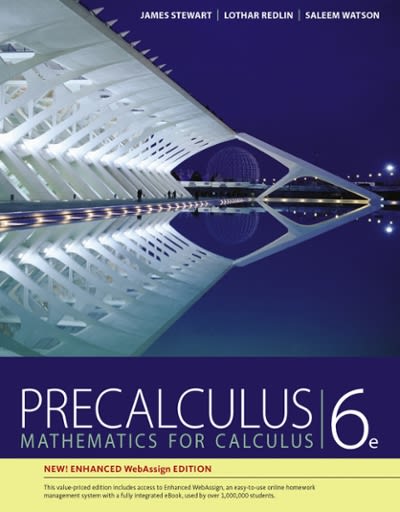Question
According to a food website, the mean consumption of popcorn annually by Americans is 58 quarts. The marketing division of the food website unleashes an
According to a food website, the mean consumption of popcorn annually by Americans is 58 quarts. The marketing division of the food website unleashes an aggressive campaign designed to get Americans to consume even more popcorn. Complete parts (a) through (c) below.
Question content area bottom
Part 1
(a) Determine the null and alternative hypotheses that would be used to test the effectiveness of the marketing campaign.
| H0: | pp | not equals equals= | enter your response here |
| H1: | mu pp sigma | not equals greater than> less than< | enter your response here |
(Type integers or decimals. Do not round.)
Part 2
(b) A sample of 810 Americans provides enough evidence to conclude that the marketing campaign was effective. Provide a statement that should be put out by the marketing department.
A.
There is sufficient evidence to conclude that the mean consumption of popcorn has risen.
B. There is sufficient evidence to conclude that the mean consumption of popcorn has stayed the same.
C. There is not sufficient evidence to conclude that the mean consumption of popcorn has risen.
D. There is not sufficient evidence to conclude that the mean consumption of popcorn has stayed the same.
Part 3
(c) Suppose, in fact, the mean annual consumption of popcorn after the marketing campaign is
58 quarts. Type I or Type II error been made by the marketing department? If we tested this hypothesis at the =0.01 level of significance, what is the probability of committing this error? Select the correct choice below and fill in the answer box within your choice.
(Type an integer or a decimal. Do not round.)
A. The marketing department committed a Type I error because the marketing department did not reject the alternative hypothesis when the null hypothesis was true. The probability of making Type I error is
B. The marketing department committed a Type II error because the marketing department rejected the null hypothesis when it was true. The probability of making Type II error is
C. The marketing department committed a Type II error because the marketing department did not reject the alternative hypothesis when the null hypothesis was true. The probability of making Type II error is
D. The marketing department committed a Type I error because the marketing department rejected the null hypothesis when it was true. The probability of making Type I error is
Step by Step Solution
There are 3 Steps involved in it
Step: 1

Get Instant Access to Expert-Tailored Solutions
See step-by-step solutions with expert insights and AI powered tools for academic success
Step: 2

Step: 3

Ace Your Homework with AI
Get the answers you need in no time with our AI-driven, step-by-step assistance
Get Started


